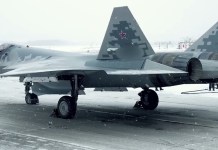Taiwan’s Ministry of National Defense announced on December 11 that proactive measures have been implemented to thwart Chinese espionage activities.
US ‘Bleeds’ In China’s Zone; After Grounding Of Entire V-22 Osprey Fleet, F-16 Crashes In The Region
This comes in the wake of reports suggesting a plot to seize a US-origin Chinook helicopter was being schemed by Beijing.
According to the Taipei Times, a lieutenant colonel named Hsieh, based in the army’s Aviation and Special Forces Command, was approached by Chinese officers who proposed evacuating his family to Thailand in the event of a cross-strait conflict.
In return, Hsieh was asked to pilot a CH-47 Chinook helicopter to a Chinese aircraft carrier in the Taiwan Strait, with a reported offer of US$15 million, covering half the helicopter’s cost, the report said.
Initially declining the offer, Hsieh eventually accepted the proposal. Investigators uncovered the espionage ring in April, leading to the arrest of Hsieh and other implicated individuals.
The High Prosecutors’ Office had previously disclosed an ongoing investigation into Lieutenant Colonel Hsieh of the 601st Aviation Brigade and a businessman with the same surname for allegedly divulging defense secrets to Chinese spies.
Minister of National Defense Chiu Kuo-cheng addressed the report, acknowledging the significant impact of Beijing’s attempts to entice Taiwanese individuals. He assured reporters that the military would transparently share information and collaborate with the courts to manage the repercussions in such cases.
The minister emphasized that the military has bolstered its response measures against various espionage methods employed by China. According to a ministry spokesperson, recent cases have largely been reported by officers themselves, enabling prompt and thorough investigations.
The spokesperson added that the Ministry of National Defense and national security agencies have conducted an internal inquiry and provided relevant information to the judiciary.
Recently, investigators searched the Command headquarters in the northern city of Taoyuan, uncovering “concrete evidence” of illegal activities, as stated by the defense ministry.
China’s Espionage Activities
Claiming Taiwan as part of its territory, China has escalated both military and political pressure in an attempt to compel the island to acknowledge its sovereignty—a proposition consistently rejected by the Taipei government.
In the last decade, a thorough examination of court records and reports from Taiwan’s official news agencies discloses that at least 21 active or retired Taiwanese officers, with ranks starting from captain and higher, have been convicted of engaging in espionage activities on behalf of China.
In November, BBC reported that Beijing’s espionage endeavors have escalated and broadened their scope beyond military domains.
Notably, at least 16 people have been accused of engaging in espionage for China since the beginning of 2023. This marks a notable difference from the 44 recorded espionage cases documented between 2013 and 2019.
The increase in espionage activities coincides with the lead-up to Taiwan’s presidential election scheduled for January 13.
According to Grant Newsham, a retired U.S. Marine Corps colonel, Taiwan presents an attractive target for Chinese spies due to its geographical proximity and shared language.
Newsham further noted that Taiwan’s measures to counter espionage are comparatively lax, making it a vulnerable target for infiltration. In a series of recent developments, the issue of espionage between Taiwan and China has come to the forefront.

In July, Lu Chi-hsien, a diabolo instructor, along with four others, was arrested on charges of establishing a spy network. Adding to the concern, in October, Liu Sheng-shu, a retired Air Force colonel, was sentenced to 20 years in prison for leading a military spy ring with ties to Beijing.
Against this backdrop, Taiwan’s National Security Bureau Director-General, Tsai Ming-Yen, previously explained that Beijing has been systematically conducting a “war without gunfire” against Taiwan.
This unconventional warfare includes activities such as incursions into Taiwan’s air defense identification zone, diplomatic isolation efforts, and import bans.
As the presidential election in Taiwan draws nearer, many observers anticipate increased interference from China. Director-General Tsai also highlighted Beijing’s persistent cyberattacks on Taiwan, indicating a multifaceted strategy aimed at influencing the upcoming election.
The recent cases of espionage underscore the complexity of the security challenges faced by Taiwan amid geopolitical tensions with China.
Nonetheless, Taiwanese counterintelligence efforts seem particularly focused on the military domain. A significant majority of the suspected spies apprehended are either affiliated with the military or are accused of trying to enlist soldiers into espionage activities.
- Contact the author at ashishmichel(at)gmail.com
- Follow EurAsian Times on Google News




